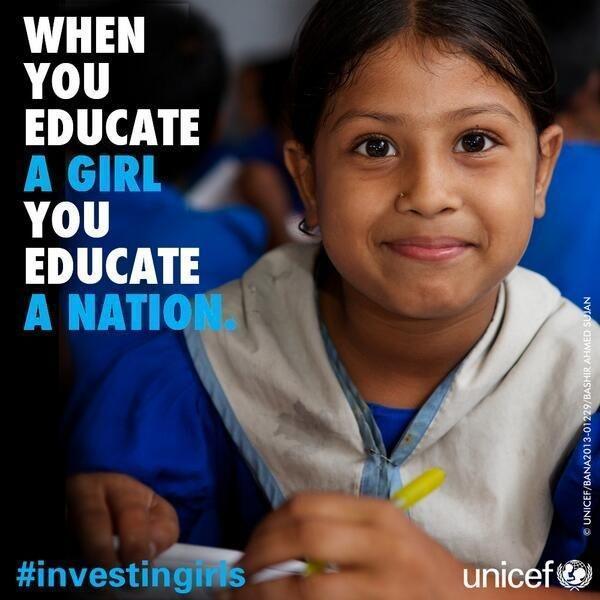“Education is the most powerful weapon which you can use to change the world” – Nelson Mandela
Education is a fundamental right. It is enhanced in Article 26 of the Universal Declaration of Human Rights. Nevertheless, according to the UNESCO, more than 61 million children of primary education age are not attending school. They suffer from an unfair disadvantage and separation in the educational systems throughout their whole lives. Most of them being Girls.
However, girls belong into the classroom. But, as easy as it sounds it is not as easy to achieve. Many barriers stand in the way for girls to receive the education they deserve. Currently, less than 50% of girls complete primacy school in underdeveloped and impoverished nations. According to UNICEF, the main obstacles for an equal access to education are cultural norms that favour boys, limited financial resources of families and a violent classroom environment that causes girls to face violence or exploitation at a very young age.
On these grounds it becomes obvious that the fight for the right of girls to education is a difficult one. But is it really? Or are we all just not doing enough?
Both questions are legitimate and both are correct. The fight for education for all is difficult. But it is not impossible. Outstanding personalities, such as Nelson Mandela and Malala Yousafzai have demonstrated that if you just stand up and fight for the people that do not have the ability to fight for themselves, you can change something. However, the importance and necessity of education is not understood universally. This can be seen when comparing money spent on education and weapons. The 287 Issue of the State of the World Report in 1997 evaluated that less than 1% of the money spent every year on weapons was needed to put every child into school by the year of 2000. This shocking fact clearly shows that the value of education was and is still very low, especially within states with a poor economic standing. This fact becomes even more shocking when acknowledging the success that education for girls has brought to the development of a variety of aspects within a society. Past experiences have shown that educated women and girls are more likely to find work, are less likely to get married at an early stage and are better enhancing their domestic role and political participation. Overall, education can beat poverty and promote gender equality. It can lead to the growth of democracies and political stability within a society, a nation and the whole global community.
Therefore, it is of great importance that state governments and societies open up their eyes, step up and comprehend that education can be the key to economic and social development and lead to a brighter future for all.
References and further Information on the Issue:
http://www.unicef.org/education/bege_70640.html
http://becauseiamagirl.ca/girlseducation
http://www.unesco.org/new/fileadmin/MULTIMEDIA/HQ/ED/GMR/images/2011/girls-factsheet-en.pdf
Interested in Human Rights? Check out the first ever Strategic Litigation Conference in Malaysia that offers the opportunity to network, share experiences and develop ideas related to strategic litigation in Malaysia.
Find out more: www.facebook.com/mcchr.slc



This information is very helpful for me. I always check your blog thanks for the share this amazing onformation with all of us.
good post.
Well i am totally inspire this post and education has to play very positive roll in our life and it can change our life with time period and thanks for it